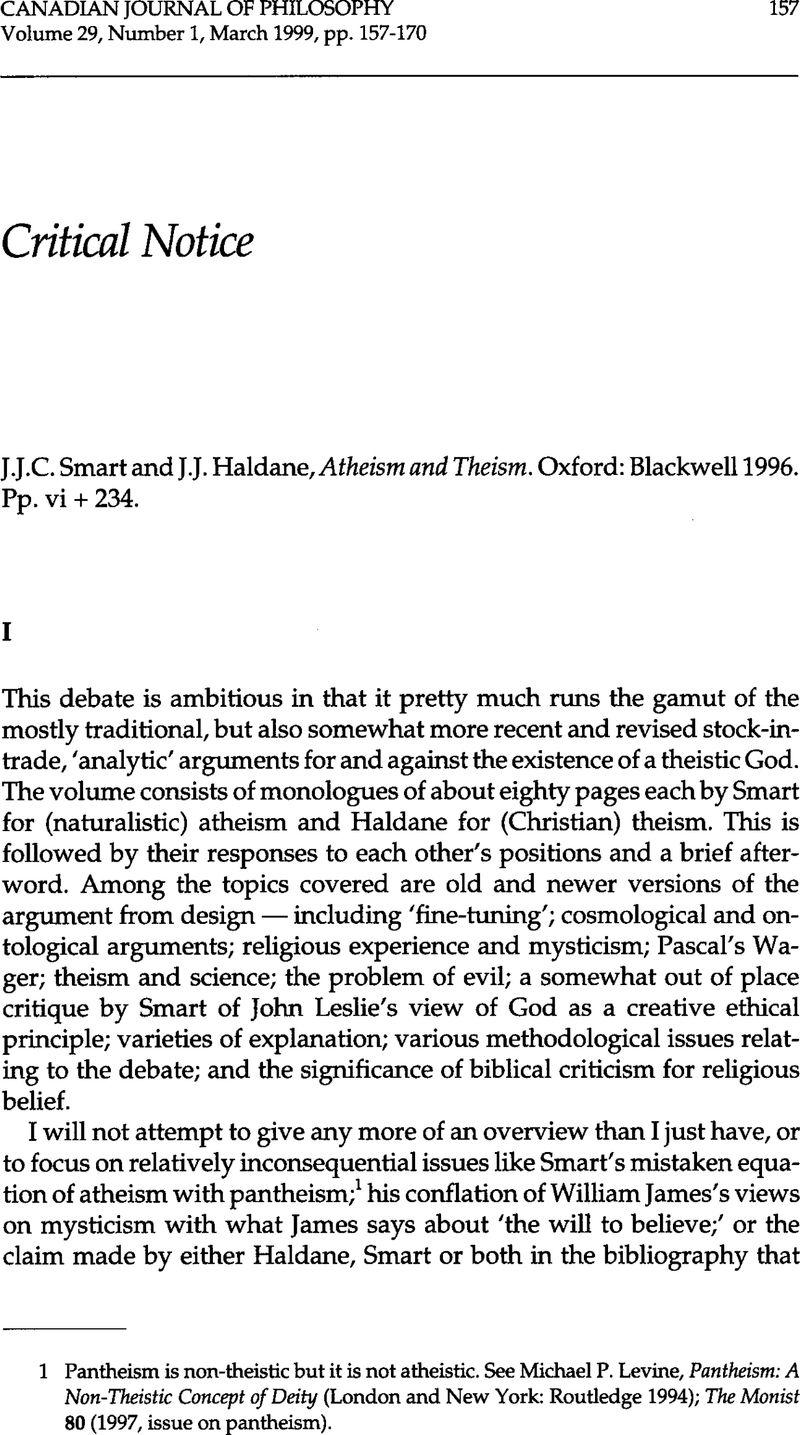Published online by Cambridge University Press: 01 January 2020

1 Pantheism is non-theistic but it is not atheistic. See Levine, Michael P. Pantheism: A Non-Theistic Concept of Deity (London and New York: Routledge 1994)Google Scholar; The Monist 80 (1997, issue on pantheism).
2 Alter, Robert The World of Biblical Literature (New York: Basic Books 1992)Google Scholar
3 Cf. Gager, John Kingdom and Community (Englewood Cliffs, NJ: Prentice Hall 1975)Google Scholar; Horsely, Richard Bandits, Prophets, and Messiahs: Popular Movements at the Time of Jesus (New York: Seabury Press 1985)Google Scholar; Mack, Burton Who Wrote the New Testament? (San Francisco: Harper 1995)Google Scholar; Saldarini, A. Matthew's Christian-Jewish Community (Chicago: University of Chicago Press 1994)Google Scholar; and work by Burton Mack and John D. Crossan.
4 Wolterstorff, Nicholas Divine Discourse: Philosophical Reflections on the Claim that God Speaks, (Cambridge: Cambridge University Press 1995), 16CrossRefGoogle Scholar
5 My thanks to Martin Jaffee (University of Washington, Program in Comparative Religion) for invaluable help with the issues pertaining to New Testament criticism, and to Rev. Richard Borthwick for discussion.
6 See my article ‘God Speak,’ Religious Studies, forthcoming) in which I discuss Wolterstorff's, Nicholas views on ‘excavative biblical scholarship’ in his book Divine Discourse: Philosophical Reflections on the Claim that God Speaks (Cambridge: Cambridge University Press 1995)CrossRefGoogle Scholar. Whether excavative biblical scholars are correct in eschewing the kinds of claims made by Wolterstorff and Haldane about the implications of their scholarship is debatable, but that such claims are eschewed is a fact they should acknowledge.
7 See Swinburne, Richard ‘The Argument From Design,’ Philosophy 43 (1968) 199–212CrossRefGoogle Scholar; and ‘Argument From the Fine-Tuning of the Universe,’ in Leslie, John ed., Physical Cosmology and Philosophy (New York: Macmillan 1990) 154–73Google Scholar; Leslie, John Value and Existence (Oxford: Blackwell 1979)Google Scholar; Davies, Paul God and the New Physics (London: Penguin 1990)Google Scholar.
8 See Swinburne's discussion of the teleological argument in Swinburne, Richard The Existence of God (Oxford: Oxford University Press 1979)Google Scholar.
9 Leslie, John Value and Existence, 122Google Scholar